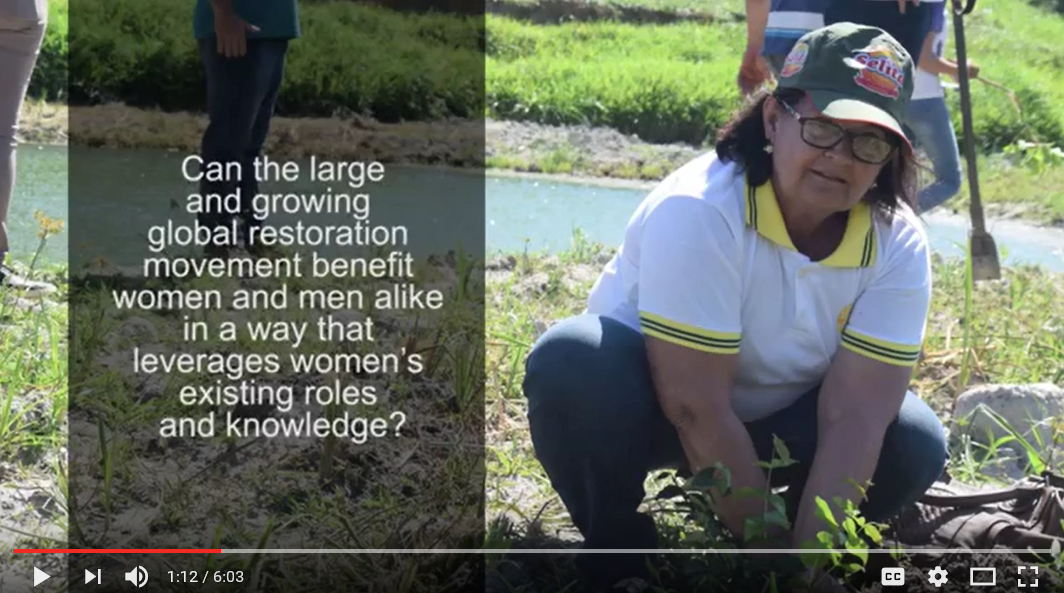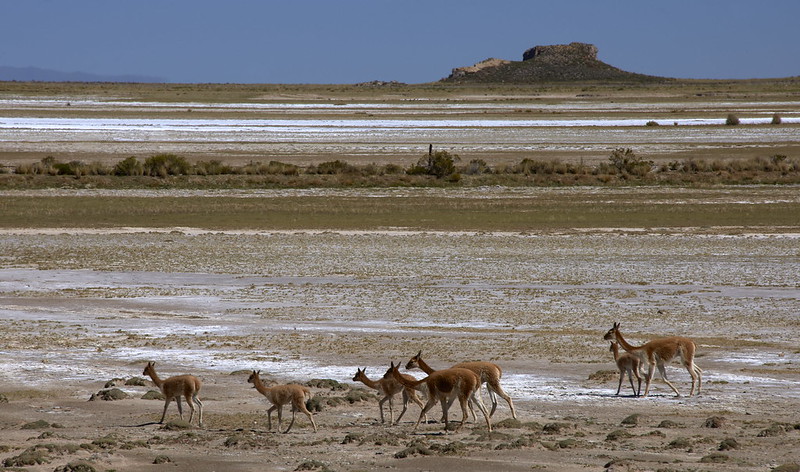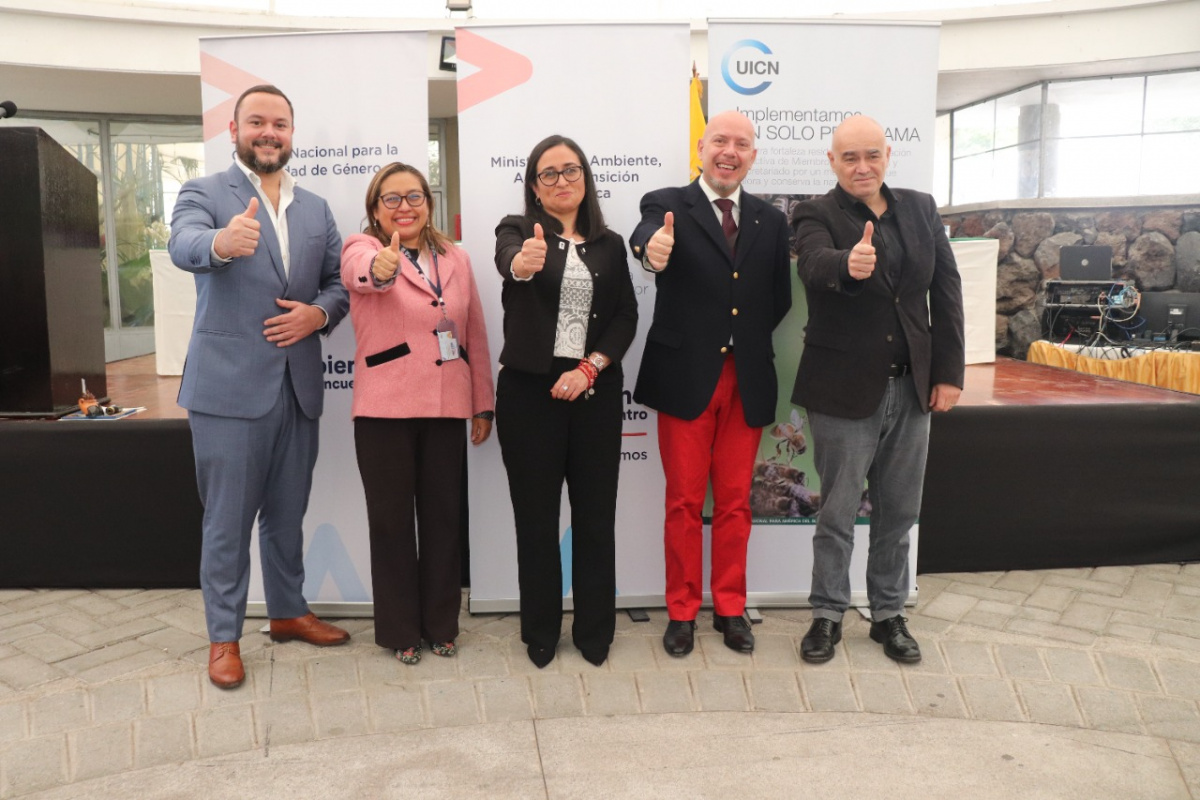VIDEO: Designing gender-responsive forest landscape restoration projects in Brazil
Every day, in their roles as farmers, foresters and household providers, women use and manage natural resources, making them integral to conservation efforts. A pilot initiative led by IUCN in Brazil is finding ways to integrate their wealth of knowledge in forest landscape restoration (FLR) projects.

Photo: IUCN Global Gender Office
In March 2016, a series of capacity-building sessions and workshops on gender-responsive FLR was held for staff from IUCN and partner organisations, government representatives, local women’s networks and FLR practitioners. The sessions resulted in the formulation of a tailor-made Gender Plan of Action (GPoA) for Brazil and a list of widely-applicable “Gender Golden Procedures,” to mainstream gender in FLR, such as:
- Knowledge products must ensure gender considerations
- Women must be regarded as a major stakeholder in projects and their participation ensured
- National and sub-national policies must incorporate gender considerations
- Gender-related messaging is included in trainings and awareness events / campaigns
Additionally, an assessment of national policies and intervention opportunities was undertaken, and National Biodiversity Strategies and Action Plans (NBSAPs) were identified as a prime entry point and opportunity to enhance gender-responsive approaches to FLR.
A key outcome of the session was the understanding that mainstreaming gender does not simply mean that women participate in an agenda that has already been decided upon. It aims to involve women, and men, in the planning process so that projects meet the priorities and needs of all community members.
Participants agreed that women’s equitable participation and representation in FLR not only upheld commitments to women’s empowerment, it also made for better development, more effective climate change solutions, and stronger sustainability and livelihood outcomes. This has been clearly documented in other projects led by IUCN, where involving women in conservation provided them with the finances and confidence to act on lacunas in education and healthcare in their communities.
IUCN has and continues to capture these important voices, documenting and sharing the knowledge and lessons learned to help others inform their work. You can learn more about the initiative and the outcomes in this video and check out the work our Global Gender Office does here.
These workshops were conducted as part of KNOWFOR, the DFID-funded partnership for improving the way knowledge on forests is understood and used internationally.



